Software Mind’s Guilds – 2022 in Review
Though Software Mind’s Guilds are already hard at work on their 2023 goals and events, there’s no better time to look back on the past year than now. And what a year 2022 was! Our 13 Guilds participated in 258 exciting development initiatives, events and projects – read on to learn more about what the Guild members got up to last year!
What are Software Mind Guilds?
Software Mind’s Guilds are communities of people who work in different teams and projects but want to develop expertise in the same field. The term is connected with the historical guilds from centuries ago, which served as an association for artisans and merchants to practice their tradecrafts. Nowadays, software guilds have been adopted in many companies, perhaps most notably at Spotify, to encourage knowledge exchange across an organization.
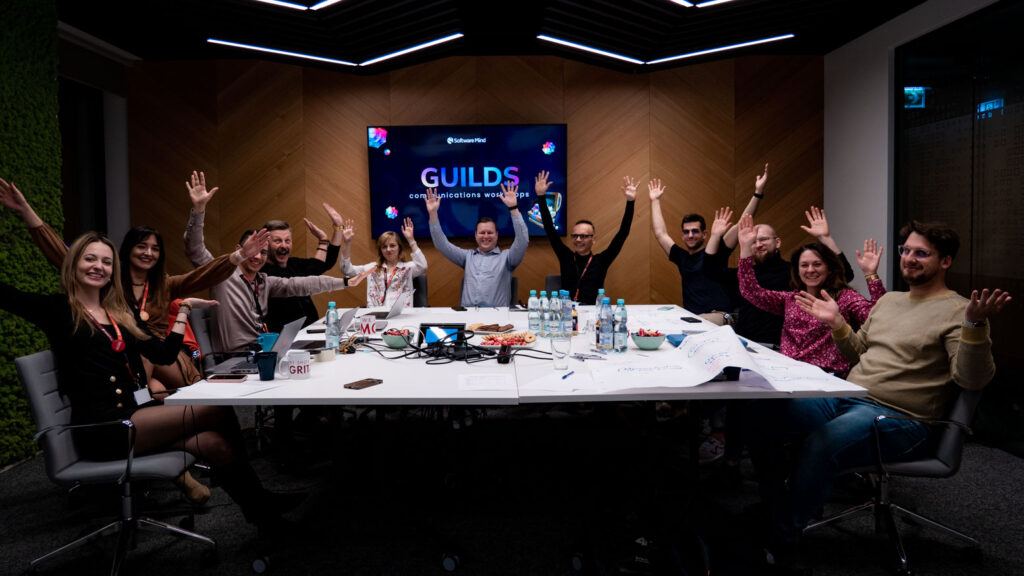
At Software Mind, Guilds are a vital element of our strategy to build a learning organization. We established them because, first and foremost, we wanted to create an environment where employees could develop their skills. We also noticed that we needed to manage and distribute knowledge between project teams in a more efficient way. As our organization kept growing, there was a real risk we would end up with knowledge silos, and our teams might spend time solving problems that had already been resolved in another project. To avoid that, Guilds provide a space for people from different teams to meet, learn from each other and strengthen collaboration.

It might sound trivial, but when we began organizing Guilds, we had to overcome some challenges. First, as the whole concept was still relatively new to people, we needed to get a mutual alignment between Software Mind managers and ambitious developers to make sure we all understood what guilds were meant for and what they were supposed to be in the future. As we always try to tackle things in an agile way, we thought big and started small to learn fast. We set up an experiment to get swift feedback.
We knew we needed a good leader for our first community, the Java Guild. It had to be someone with proven domain knowledge and great leadership skills. Fortunately, we had Mateusz Mnich on board, who fits this profile perfectly and wanted to organize and lead our first Guild.
Then, as with any new initiative, we needed to gradually build interest and encourage participation. It was all about building the Guilds’ recognition via internal and external communication and sharing the reasons why we created Guilds – with the help of internal opinion leaders. Good organization and engagement from Guildmaster and contributors were also crucial. Thanks to these factors, the development opportunities offered by the Guilds (meetings, workshops, cooperation with universities to give lectures, participation in conferences) quickly became popular among our Software Minders. This experience helped us draw conclusions and learn enough to kick off more guilds. That’s how it all started.
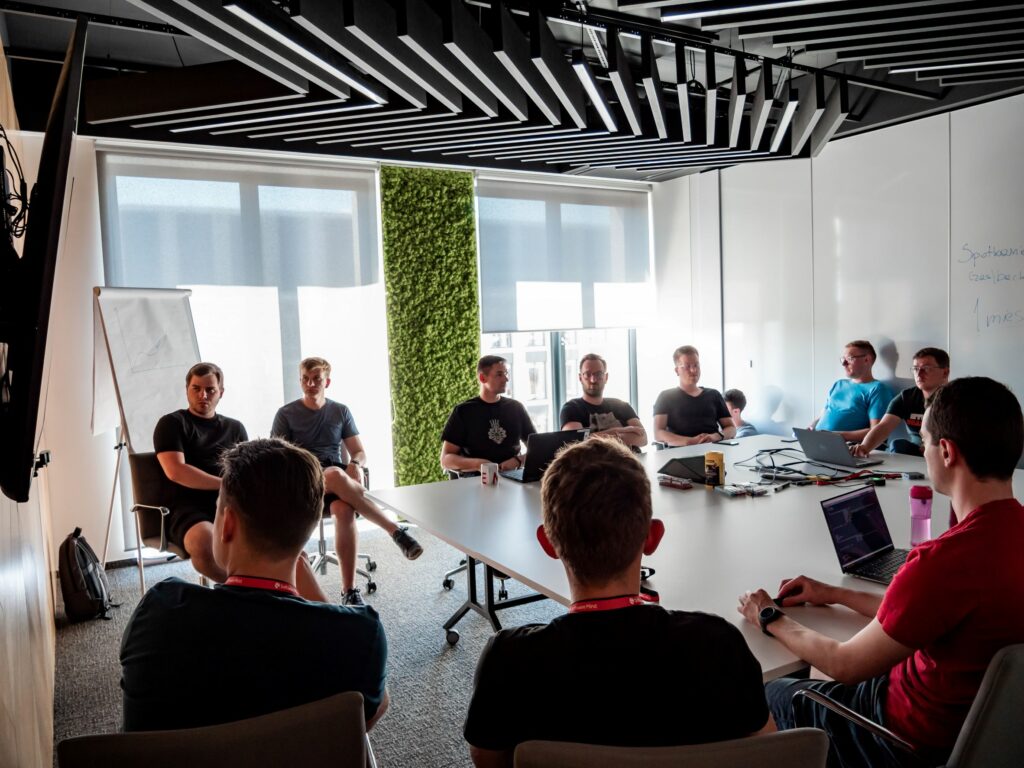
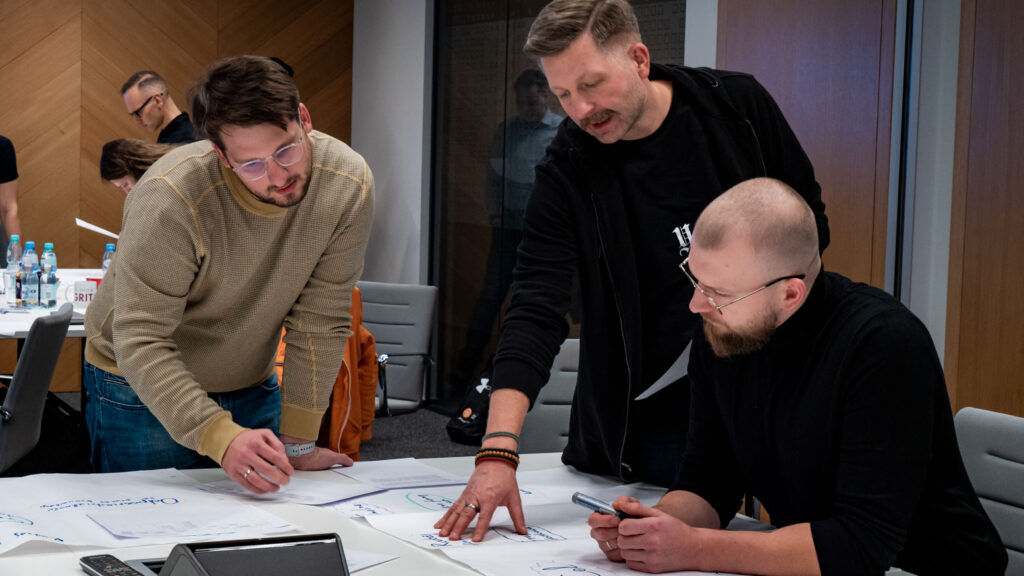
What are the Guilds’ goals?
Through Software Mind’s Guilds, we’re fostering a culture where people can connect with other specialists and drive innovation within the company. This attitude is reflected in our Guilds’ goals:
- Boost skills by gaining and exchanging knowledge
- Create professional and personal growth opportunities
- Build communities that encourage creating and using best practices
- Offer technical support for teams across the entire organization
Guilds meet these goals through a range of activities. Guild members exchange and expand their knowledge through regular knowledge-sharing sessions, workshops and hackathons, as well as by solving project problems together. Apart from internal meetings, Guild members also participate in conferences, publish technical blog posts and participate in employer branding initiatives.
The Software Mind Guilds in 2022
2022 has seen the most intense development of our Guilds so far. We started the year with two active Guilds, but wrapped up December with 13! Software Minders can join and grow their skills in the following groups:
- Java Guild, led by Mateusz Mnich
- Front-end Guild, led by Tomasz Krupa
- Design Guild, led by Alicja Jakubas-Kryza
- Security Guild, led by Jan Jurek
- Business Analysis & Product Ownership Guild, led by Anna Gołuchowska
- Data Science Guild, led by Marcin Sieprawski
- Golang Guild, led by Igor Nawrocki
- Management Guild, led by Tomasz Borowski
- Quality Assurance Guild, led by Mateusz Statek
- .Net Guild, led by Marcin Węglowski
- Mobile Guild, led by Oskar Korzonek
- DevOps Guild, led by Tomasz Człapski
- Blockchain Guild, led by Piotr Woźny
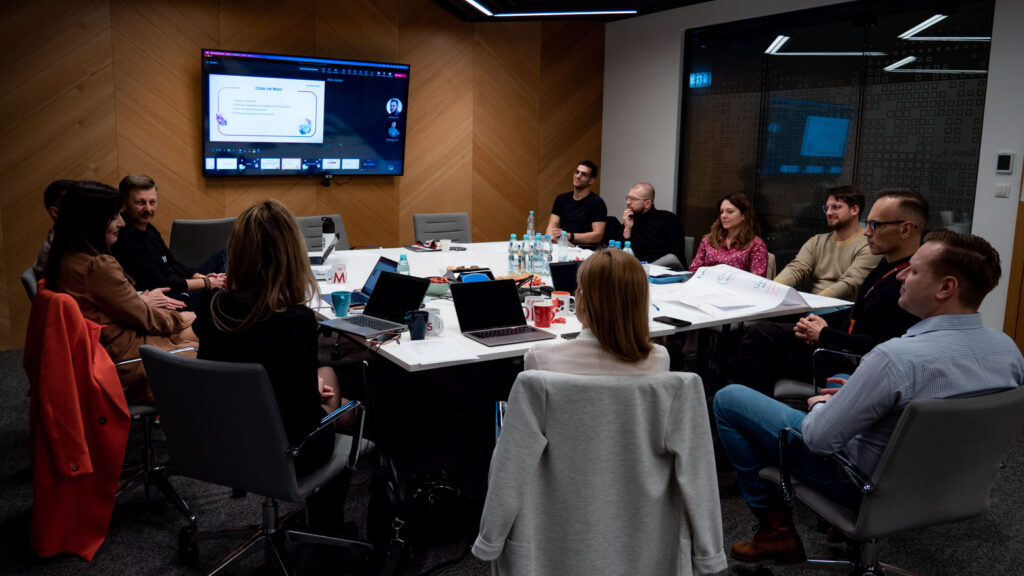
They are all supported by Tomasz Krakowczyk and Hubert Ochmański, who lead our Guilds.
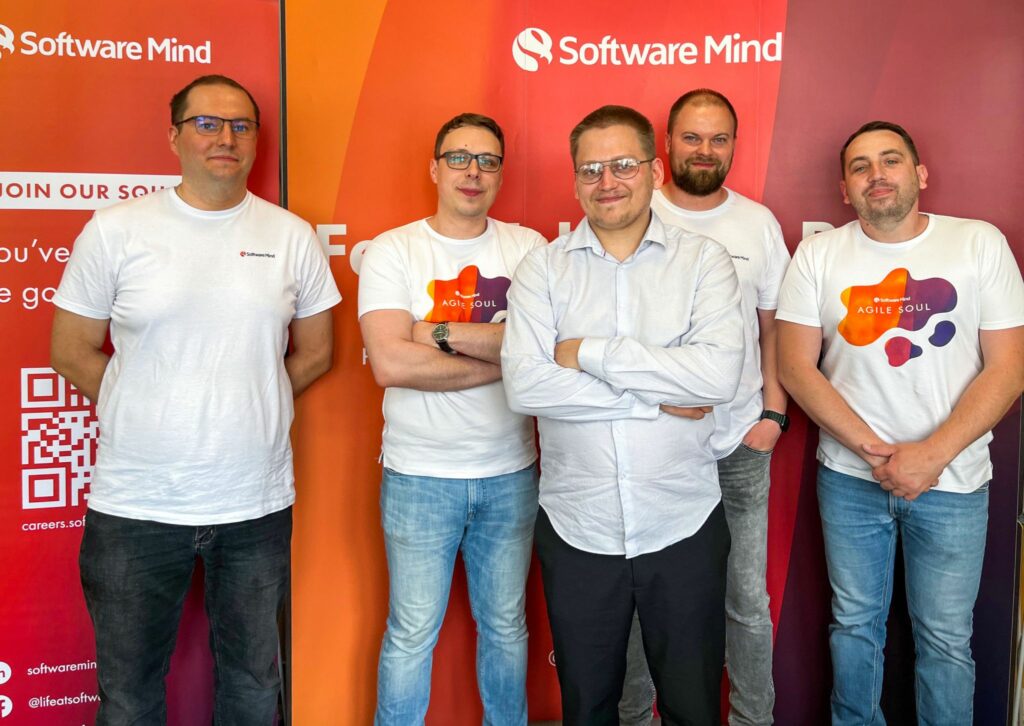
Over the year, our Guildmasters and Guild members:
- organized 123 internal workshops where they shared their technical knowledge. Some highlights include workshops on web app security and SQLInjection, XSS, SSRF, CommandInjection (led by Jan Jurek), security audits of IT systems (led by Daniel Sutkowski), clean architecture, Azure Application Insights, automating tests without changing a project, business perspective in testing, the basics of optimalization in development, GraphQL and Typescript,
- joined 33 training sessions run by external experts, including workshops about Lean Architecture Framework, Event Storming, refactoring legacy systems, modern architecture of web apps and communication,
- gained access to 20 e-learning platforms, including Udemy, PluralSight, Coursera, Kodeco (previously raywenderlich), as well as cloud and cybersecurity courses,
- participated in and delivered talks at 17 IT conferences, such as the JDD conference, Designways, TestJS Summit, NG Poland, Data Science Summit and H@ckSummit.
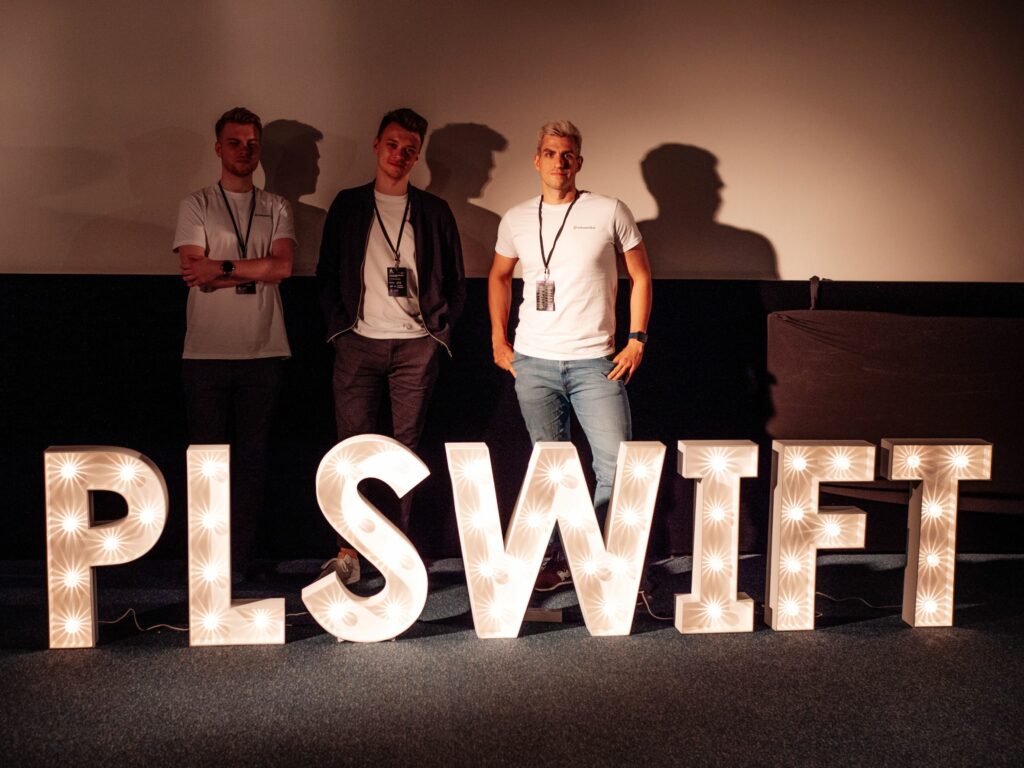
They also shared their knowledge in 15 technical and business articles on our blog and gave 6 lectures and workshops at universities.
The past year was packed with exciting opportunities and different development initiatives – 258, in total. While all of them won’t be listed here individually, given the sheer volume of activities, we want to highlight a few particularly interesting events and projects.
Mobile Guild’s Hackathon – During this 24-hour hackathon, Mobile Guild members created the Software Mind Universe app, really putting their skills and energy to the test. And they did an amazing job. The app’s goal is to make job fairs and conferences more fun with augmented reality, IT quizzes and easy access to job offers.
The Guildify app – The Blockchain Guild is developing an app that will introduce gamification elements to their Guild members’ activity. Using blockchain technologies, Solidity and Ethereum, the Guildify app will use the Guild members’ data on their participation in different activities to award points and special badges, making Guild participation even more fun.
Research & development (R&D) playgrounds – The DevOps Guild created several playgrounds and infrastructures, which can be used to explore and experiment with different solutions. It’s a great opportunity for engineers to work with new technologies and test their skills.
Guilds – where you develop skills and build a community with fellow experts
The increasing number of Guilds at Software Mind shows that virtually everyone can find a community that will suit their interests and development goals. Guilds provide a unique opportunity to grow IT competences by combining self-development with team learning from other internal experts.
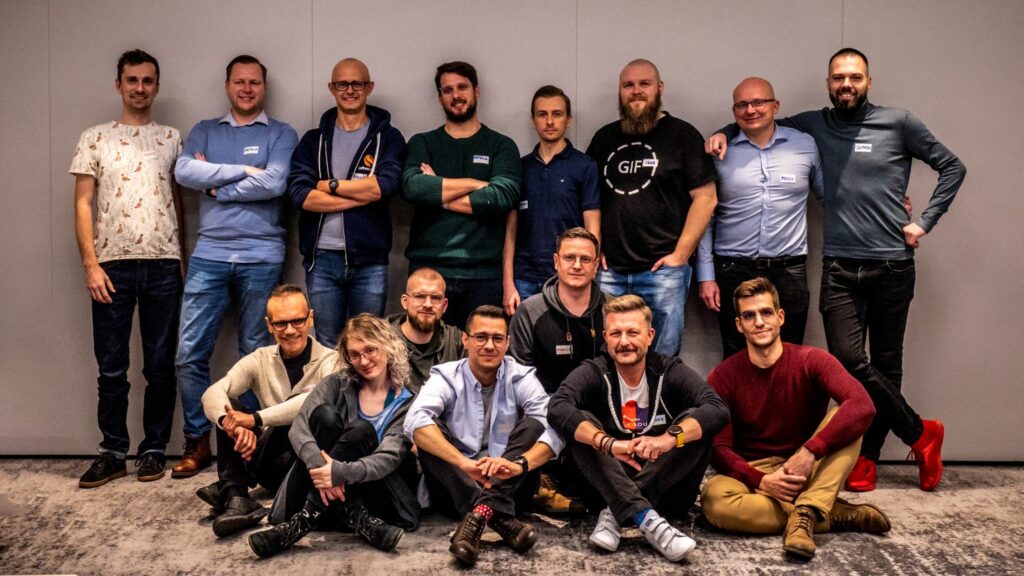
Guilds also become knowledge hubs within the organization. If you have any issues in your project outside of your specialization, you can count on Guild members to offer advice and point you to tested solutions. Guild members keep their finger on the pulse of their area of interest and promote best practices. It’s their passion, curiosity and ambition that create an environment of close collaboration, inspiration and high-quality software.
If you want to find out more about our Guild initiatives and Guild masters, follow #SoftwareMindGuilds on LinkedIn, Instagram and Facebook.
Looking for job opportunities where you can work on ambitious projects and grow your skills? Check out our open positions.